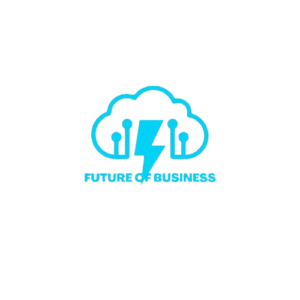Understanding the Role of a High Ticket Appointment Setter
A high ticket appointment setter plays a unique and vital role in today’s sales landscape. Unlike traditional appointment setters, who may schedule calls for low-value services or products, high ticket setters specialize in creating opportunities for premium offers that often involve thousands of dollars in investment. Their responsibility is not just to book a meeting, but to ensure the lead is qualified, interested, and prepared to have a meaningful conversation with a closer. This distinction makes them a critical part of high-value sales strategies. Companies dealing in coaching, consulting, luxury real estate, SaaS, or premium programs recognize that this position saves time and increases conversions. By filtering out unqualified prospects early, they ensure closers focus only on serious buyers. In short, the high ticket appointment setter is the bridge that connects interest to investment in the premium sales world.
Why Businesses Rely on High Ticket Appointment Setters
Businesses that sell premium services or products often face unique challenges. Prospects may have higher expectations, more questions, and greater hesitation before committing to significant investments. Without someone managing the front end of the sales process, closers could waste hours speaking with unqualified leads who are unlikely to buy. High ticket appointment setters solve this by handling the initial conversations, nurturing relationships, and ensuring only the right people move forward. This role frees up sales closers to focus solely on converting prepared prospects into paying clients. Additionally, businesses gain a streamlined system where efficiency and productivity increase dramatically. The result is not just more sales, but better use of time and resources. For many growing companies, the difference between struggling and scaling lies in whether they have skilled appointment setters in place.
Essential Skills Every High Ticket Appointment Setter Must Have
Not everyone can thrive as a high ticket appointment setter because the role demands a unique skill set. Strong communication is at the top of the list, as the ability to engage prospects confidently and clearly is essential. Active listening also plays a critical part, since understanding what the lead needs allows the setter to qualify them effectively. Beyond communication, rapport-building is key, because prospects need to feel comfortable and valued during the initial interaction. The ability to handle objections gracefully ensures that potential buyers do not drop off at the first sign of hesitation. High ticket appointment setters must also understand buyer psychology, particularly how premium customers think and make decisions. Finally, organizational and time management skills help them juggle multiple leads, follow-ups, and appointments seamlessly. When combined, these skills create a professional who not only books calls but drives revenue growth.
The Process Behind High Ticket Appointment Setting
High ticket appointment setting follows a structured process designed to maximize efficiency and conversions. It begins with prospect research, where setters identify and study leads who may be a fit for the premium offer. From there, the setter initiates contact through calls, emails, or social media platforms, ensuring that outreach feels personalized and authentic. Once the conversation begins, the setter uses a script or framework that is flexible enough to sound natural while still covering important points. Pre-qualification is the next step, where the setter asks questions to confirm whether the lead has the budget, authority, need, and timeline to move forward. If the lead is not a fit, they are filtered out; if they are, the setter schedules a call with a closer. Follow-ups also play a big role, as many prospects need reminders and nurturing before committing. This process ensures that every appointment is worth the closer’s time.
Tools and Technology That Enhance Appointment Setting
Technology has transformed the way high ticket appointment setters operate, making their jobs faster and more effective. Customer relationship management (CRM) systems allow setters to track every lead’s interaction, stage in the sales funnel, and next steps. Scheduling and calendar automation tools reduce back-and-forth communication and help prevent missed opportunities. Communication platforms like SMS, email, and social media messaging apps integrate seamlessly to allow multiple touchpoints with prospects. Data analytics tools enable setters to measure performance, such as call-to-appointment ratios and conversion rates, which are vital for continuous improvement. Additionally, some appointment setters use AI-driven tools to personalize outreach and segment audiences more efficiently. The right combination of technology not only saves time but also provides valuable insights that elevate the entire sales process. In a competitive environment, technology is the setter’s silent partner in achieving consistent results.
High Ticket Appointment Setter vs. Closer: The Differences and Synergy
Although both roles exist within the sales team, a high ticket appointment setter and a closer serve very different purposes. The setter focuses on building initial relationships, qualifying leads, and ensuring that only serious prospects reach the closing stage. In contrast, the closer specializes in presenting the offer, handling detailed objections, and ultimately securing the sale. Expecting one person to handle both responsibilities often leads to burnout and inefficiency. However, when setters and closers work together, the sales process becomes a seamless flow. Setters ensure that closers only speak with pre-qualified leads, which shortens the sales cycle and increases conversion rates. This synergy allows businesses to scale faster, as each professional can concentrate on their area of expertise. Ultimately, the division of labor between setters and closers creates a system where everyone wins: the company, the sales team, and the customer.
Industries Where High Ticket Appointment Setters Make the Biggest Impact
The demand for high ticket appointment setters is particularly strong in industries where deals involve significant investments. Coaching and consulting businesses rely heavily on them because prospects often need personalized guidance before purchasing premium programs. Real estate professionals, especially in the luxury sector, benefit from setters who connect them with qualified buyers ready to make big financial commitments. SaaS companies that sell enterprise-level solutions also use appointment setters to navigate complex sales cycles. High-end e-commerce brands dealing with premium products, such as luxury watches or designer items, require setters to pre-qualify serious buyers. Even healthcare, financial services, and education sectors are increasingly relying on appointment setters for their high-value programs. In all of these industries, setters serve as the first line of trust, ensuring prospects feel supported from the very beginning. Without them, many businesses would struggle to scale effectively.
Common Challenges Faced by High Ticket Appointment Setters
Despite the importance of their role, high ticket appointment setters face daily challenges. Rejection is one of the biggest hurdles, as many prospects are not ready to commit during the first interaction. Handling objections requires patience and skill, since prospects often have concerns about cost, timing, or value. Staying motivated in a role that is often performance-based can also be difficult. Another challenge comes from inconsistent lead quality, where some prospects may not meet the qualifications despite initial interest. Additionally, setters must balance persistence with professionalism, knowing when to follow up without being pushy. The fast-paced nature of sales also means they need to adapt quickly to changing scripts, strategies, and tools. Overcoming these challenges requires resilience, training, and a mindset focused on long-term success.
How to Become a Successful High Ticket Appointment Setter
Anyone interested in becoming a high ticket appointment setter should focus on building specific skills and gaining relevant experience. Training programs, both online and in-person, provide valuable frameworks for objection handling, communication, and lead qualification. Roleplaying exercises help aspiring setters practice real-world conversations before speaking with actual prospects. Confidence grows with repetition, and every interaction provides a learning opportunity. Networking with seasoned sales professionals allows newcomers to gain insight and mentorship. Over time, successful setters develop their own unique style that combines authenticity with proven techniques. Continuous improvement, adaptability, and a willingness to learn are what separate good setters from great ones. For those who stay committed, this role can open doors to higher-paying opportunities and leadership positions in sales.
The Earning Potential of a High Ticket Appointment Setter
One of the most attractive aspects of becoming a high ticket appointment setter is the income potential. Pay structures vary, with some companies offering a base salary plus commission, while others work solely on commission. The earning potential largely depends on the industry, the value of the product or service, and the volume of qualified appointments set. In industries such as coaching, consulting, and SaaS, it’s not uncommon for setters to earn a significant income because of high-value deals. Commission percentages may seem small at first, but when tied to premium sales, they add up quickly. Top-performing setters often exceed average earnings, especially when they consistently bring high-quality leads to closers. For many, this role offers not just financial rewards but also opportunities for growth within the sales profession. As demand for premium offers grows, so does the financial outlook for skilled setters.
Future Trends in High Ticket Appointment Setting
The future of high ticket appointment setting is evolving as technology and buyer behavior change. Artificial intelligence is starting to play a larger role, helping setters identify and engage qualified prospects faster. However, despite automation, human connection remains essential in premium sales, since trust and relationship-building cannot be fully replaced. Remote work opportunities are also expanding, allowing setters to work with companies worldwide. As global markets grow, so does the demand for professionals who can bridge cultural differences in sales conversations. Another trend is the integration of multi-channel outreach, where setters connect with leads across email, phone, LinkedIn, and other platforms simultaneously. Businesses that adapt to these changes and train their setters accordingly will remain ahead of the competition. The role of the high ticket appointment setter is only becoming more valuable, not less.
FAQ Section
What does a high ticket appointment setter do day-to-day?
A high ticket appointment setter spends their day researching leads, making outreach calls, sending follow-up messages, and scheduling qualified prospects for sales calls with closers. Their primary focus is ensuring that the people they book are serious and fit the offer.
How much can a high ticket appointment setter realistically earn?
Earnings vary by industry and structure, but many setters make a solid income through commission-based pay, with top performers reaching six figures annually when working with high-value offers.
Do you need prior sales experience to become an appointment setter?
While experience helps, many companies train motivated individuals. Strong communication skills and a willingness to learn are often enough to get started.
What industries hire high ticket appointment setters most often?
Industries such as coaching, consulting, SaaS, real estate, luxury products, and financial services frequently rely on setters to manage premium sales pipelines.
Is this role commission-only or salary-based?
It depends on the company. Some offer a base salary plus commission, while others operate strictly on commission. The pay model usually reflects the potential earnings tied to the value of sales.











